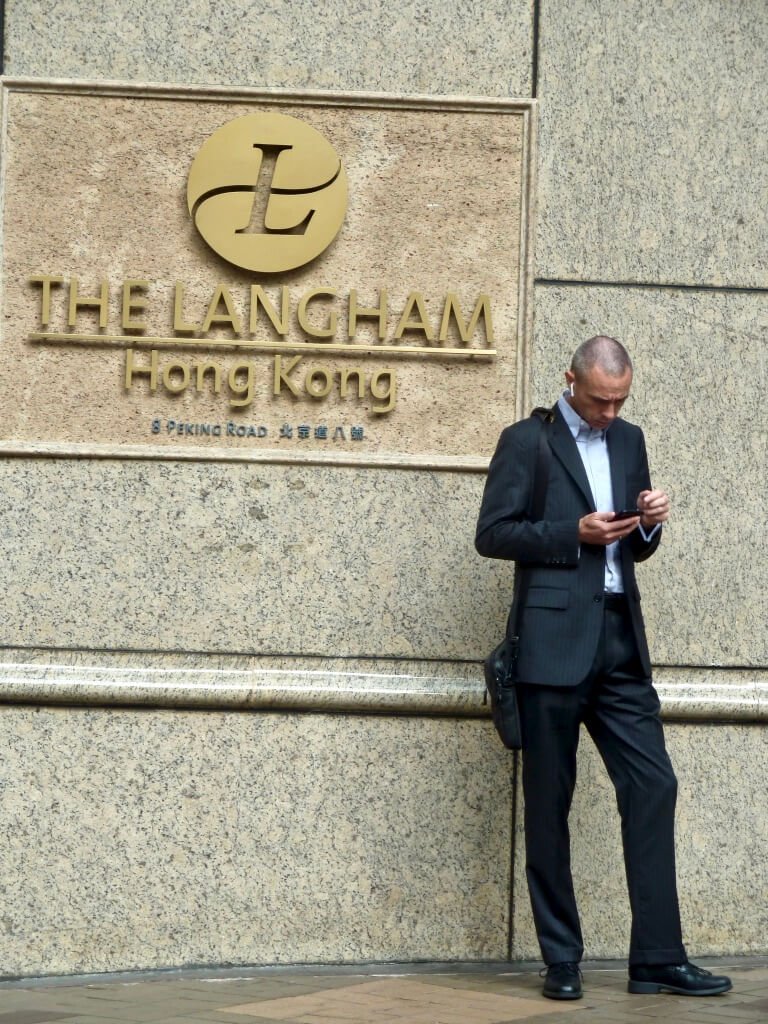How to Build a UK Property Portfolio as an Expat
Are you an expat interested in investing in the UK property market?
In Episode 107 of Expat Property Story, a podcast for expats and remote investors investing in UK property, I painted a picture of a future in which we were on a ‘No News, No Shoes’ holiday in the Maldives.
We funded this future dream holiday from our UK property portfolio, assembled through the blood sweat and tears of 17 years as UK expats in Hong Kong.
Here are some of the things that have gone wrong during our Expat Property Story
UK Property Bloopers!
We thought we’d bought a property through a sourcing agent. But they’d sold the same UK property to two different investors!
They then did the same thing 6 weeks later!
We agreed to buy a property to turn into a 6 bed HMO. But the vendor to get cold feet and went AWOL.
We bought a property at auction with vacant possession. But the tenant hadn’t moved out!
And we bought another property at auction with a tenant in situ. 9 months later they haven’t paid a penny in rent and we’re still trying to evict them.
“Mmmm… This new build off-plan development looks good in the brochure…” DON’T DO IIT!
Stairway to Seven…
As the David Bowie song goes, ‘It Ain’t Easy’.
In the episode, I laid out seven steps for you to follow when building YOUR expat UK property portfolio.
Whether you are new to the world of property investing or looking to refine your strategies, this guide to expat UK property investing will help set you on the path to success.
Step 1: Building Your Knowledge
The first step in building a UK property portfolio is acquiring knowledge. Most of your learning will come from taking action.
Property podcasts like Expat Property Story, The Property Podcast, The Property Voice Podcast, and Inside Property Investing Podcast are great starting points.
These resources will help you learn from the experiences of others and gain insights into various property investment strategies, ensuring you make informed decisions.
Step 2: Working Out Your Future Plans
Back to the Future
As an expat investor, it is vital to consider your future plans and goals. One key factor to consider as an expat is currency risk.
If you’re tempted by Thailand or you fancy the Philippines, you’ll want to think about the potential impact of fluctuating exchange rates on your retirement income.
And if you plan to return to the UK as a salaried employee? Then buying properties through a limited company may provide tax advantages.
But if you’re planning to return to the UK with no intention of working for others? Then you might want to buy some property in your own name rather than through a company.
This helps avoid double taxation: once via corporation tax and then a second time through income tax.
And inheritance tax implications are different for both paths. If you take the limited company route, you could set up a family trust as a shareholder in the business.
This gives you the flexibility to pass on the value to the next generation without passing on the income.
But if you hold property in your personal name, watch out! You can’t pass on the value of the properties for IHT purposes without also giving away some of the income.
That’s ok, I hear you say… I’ll gift my kids the property in the future so that they can receive an income while at university!
But this could trigger Capital Gains Tax and Stamp Duty Land Tax.
So, it’s six of one tax and a half dozen of another…
One final factor to consider here. If you finance your company with your own funds via director’s loans, then you can withdraw these funds tax free. Because the government already taxes these funds before you lend them to the company in the first place.
In short, speak to a tax advisor.
Step 3: Funding
How Are You Going to Pay?
With fewer than four properties you are not yet a portfolio landlord. So, you can deal directly with high street expat specialists.
But these lenders can be slow to respond. If you’re in a hurry, or your situation is complicated it may be quicker and easier to go to a specialist expat mortgage broker. Paying £500 for a good broker will save you time and money further down the line.
So, what are some of the things lenders don’t like?
One of the most significant factors is where you’re based. Many lenders will not lend to you if you fall below a certain rank on the delightfully named Corruption Perception Index.
Lenders also like global multi-national corporations. So if you work for an SME Start-up in South Sudan, you may have to go down the unencumbered cash only route.
Especially if you married a local and your spouse is a 50% shareholder in a Limited Company set up so recently it has no Company Tax Return filed at Companies House!
And before you leave the UK, make sure to look after your digital footprint by remaining on the Electoral Roll, maintaining a UK bank account, and having two proofs of a UK address.
All these factors and more are addressed in our two-part special on expat mortgages featuring friend of the pod Simon Allen back in Episodes #15 & #16.
Step 4: Choosing a Location
Location Location Location
Choosing the right location is key to a successful UK property investment. Do your market research. Identify areas with strong rental demand, growth potential, and good infrastructure.
Factors to consider include proximity to universities, good transport links, employment opportunities, and local infrastructure development.
Step 5: Choosing Who to Work With and Who to Trust
Identifying reliable and trustworthy professionals to work with is crucial if you want that holiday in the Maldives…
Back to Adam from Episode #89 for this one and he suggested that there are two paths to follow at this stage.
One where you do everything yourself from abroad. So, you decide on your area. You research it. You speak to letting agents and do all the viewings using Viewber or friends and family etc. etc..
After that, you negotiate with owners or estate agents. If you’re doing a project, you find a project manager. And finally, you find someone to manage the property for you.
Some people even do this last part themselves but that’s a tiny minority, so let’s leave that to one side.
But if you’re a time-poor expat with a full-time job and a family then that’s out! You’re going to need to find someone to help you.
And here’s where you need to be careful. Don’t fall into the trap of buying an off-plan new-build off a dodgy developer at an over-inflated price, with unrealistic rent guarantees that you may end up having to sell at a loss.
And even if none of that happens, all the profit goes to the agent selling you the deal rather than you. So, more than ever, buyer beware.
My own tip is to go looking for someone to work with rather than be approached yourself.
And here is where trust comes into it. Your job as an expat UK Property Investor is to research everyone you’re thinking of working with. Find them via your network.
Look for them on podcasts. Ask about them on forums. Talk to them. Ask them about a situation with other investors where things didn’t work out well. Contact those investors. Ask for three more references and call them all. Even if your potential partner has hand-picked them themselves, you will learn things.
Step 6: Building a Network
Your Network Is Your … No… I just can’t do it…!
Networking is an essential aspect of success in the property investment industry.
Even as an expat, networks are everywhere: forums, Facebook groups, WhatsApp communities, meet-ups. If you can’t find a community where you are, start your own.
A few years ago, I turned up to a local property meet-up in Hong Kong to find only a handful of other investors. One of them went on to invest a six-figure sum in our business. You never know who you will meet until you try.
If you can’t find a community where you are, start your own.
Earlier this year, we started a Hong Kong monthly meetup and listeners in Dubai and Singapore have also started their own gatherings.
Next, we started a WhatsApp group so that people can tap into the knowledge and experiences of others.
But I’ve recently received a few emails from expats in remote areas where there may not be other UK investors or none that they know about anyway.
So I thought it might be helpful to open up our Hong Kong WhatsApp group to other expats.
If you want to join the group, then sign up for our mailing list either by following the link in the show notes or by heading to the podcast website, www.expatpropertystory.com
Step 7: Taking Action
Don’t Talk. Just Do!
When we were building our UK Property portfolio from Hong Kong, we didn’t wait till everything was perfect. We made, and still make, lots of mistakes. Fewer as time goes by hopefully! But we find solutions, adjust our aim and shoot again. We earn or we learn.
My favourite quote from all 107 episodes of this podcast comes from Rod Turner in Episode 42 and is just 4 words long.
Don’t Talk. Just Do!
And before you know it, you’ll be sipping Pina Coladas in the Maldives
Keep up-to-date with the ever-evolving UK property market through an expat lens…
Sign up to our mailing list
Our monthly newsletter
A PDF containing 37 questions you should consider asking someone you’re thinking of working with or investing in or with
Our 23 step guide to buying property at auction






